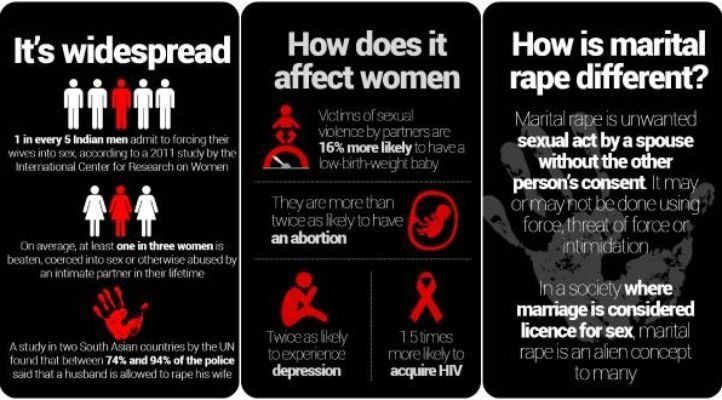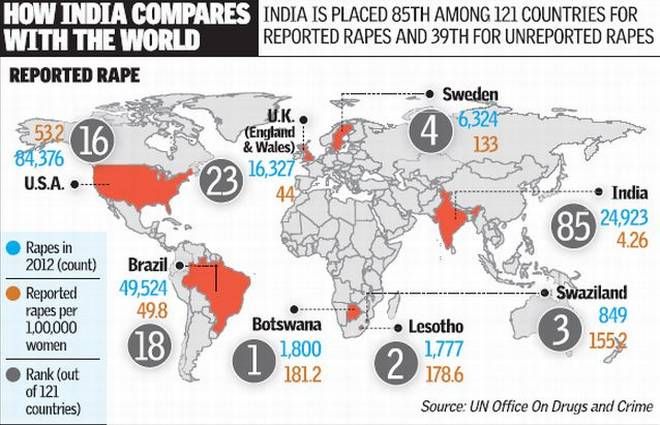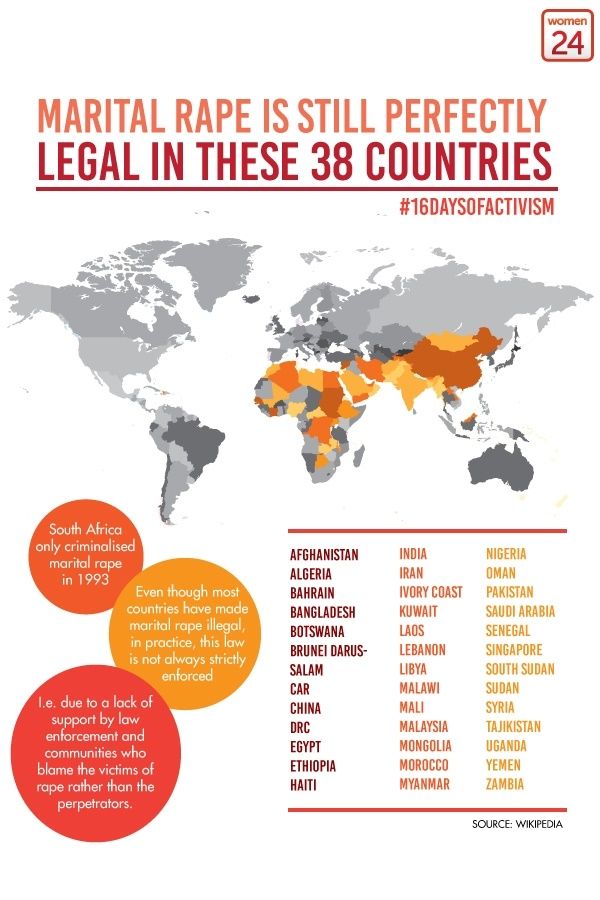Intimate Partner Rape
May 23, 2019 • 52 views
You are in your house tired, after a very long day at your work or your college. You doze off before your partner arrives. You are slightly awakened by the snuggles and the cuddles of your partner. They want to do more than just a cuddle but you don’t. But then after much coercion or persuasion you give in and without your own free will you give your partner what they want. You try to do what they want because you love them and want them to be happy while trying to be happy yourself. Would you name this rape?

Intimate Partner Rape is when a woman or a man is raped or abused sexually by their partner. The relationship can be casual, date, a serious relationship or a marriage. In all of these cases, the sexual freedom of the victim is abused by the abuser to set a precedent of power in the relationship. It is used by the abusers to intimidate, control and demean the abusers. Intimate partner rape is much more prevalent than stranger or acquaintance assault. About 25% of the women are sexually assaulted by their partners in the relationship, and about 45% of the women in abusive relationships are susceptible to intimate partner rape multiple times. More than half the women are abused several times sexually through the course of the relationship.

Intimate Partner Violence is all about power and control and it can take many forms. John Gottman and Neil Jacobson wrote the book When Men Batter Women after studying various violent relationships. They classified the abusers or ‘batterers’ into 2 categories: ‘Pit bulls’ and ‘Cobras’.
The Pit Bulls are stereotypically similar to the traits of a vicious animal latching on to the victim and not letting go. They are very much emotionally dependent on their partners. They are excessively possessive and a bit of a control freak. They fear abandonment, and are very controlling, jealous and have a very violent reaction to betrayal.
The Cobras are similar to a venomous who will stealthily attack their partner. They have sociopathic, antisocial, psychopathic traits. They have a pathological need for power and control from their victims. Their behaviour is mostly calculated and is very much sadistic.
Women who are sexually assaulted by their intimate partners, suffer from severe and long-lasting mental and physical health issues similar to those of other rape survivors. They suffer from much more intense mental health problems like depression, anxiety and other problems because of the trauma of being abused by a known and trusted person.

Regardless of the relationship between the victim and abuser, the most rudimentary reason for engaging in intercourse is intimacy and the need for sexual gratification. However, when the abuser decides that the needs of his partner is not necessary and values only his/her own interests, they consciously put away the needs of their partner and they dehumanize, demean and disrespect the victim.
Between 10% - 15% married women have atleast once experienced marital rape. About 18% of the victims have said that their children have witnessed the crime. While only 36% of the women report sexual assault, the percentage of women who report marital or intimate partner rape is even more less. This is due to the stigma associated with this issue. People tend to not accept that people in a relationship might at sometimes not want to be intimate. It is important to respect the feelings and dignity of the other person in the relationship without just thinking of the needs of oneself.
It is important to know that just because there have been events of sexual intimacy before it does not mean that you have a free pass for future events. It is always important to ask the other person if they are fine with gratifying needs, and if there is a direct or a subtle ‘no’ should be taken seriously and the person should step away and respect their partner’s wishes. Intimate Partner Rape is real and it exists. Marital Rape is real. We need to acknowledge it’s existence and provide support to the victims of domestic violence and intimate partner rape.

